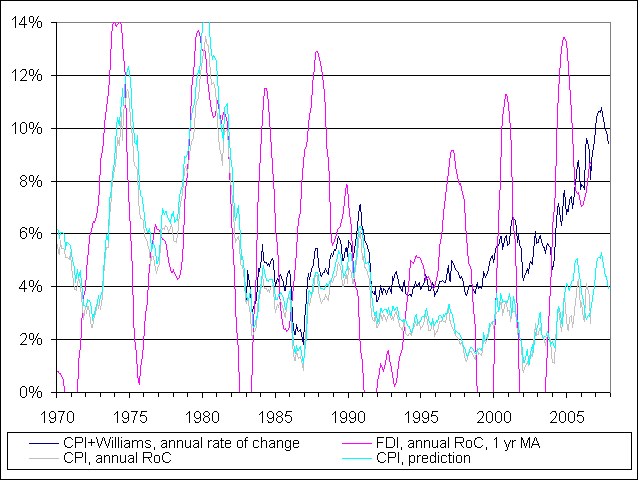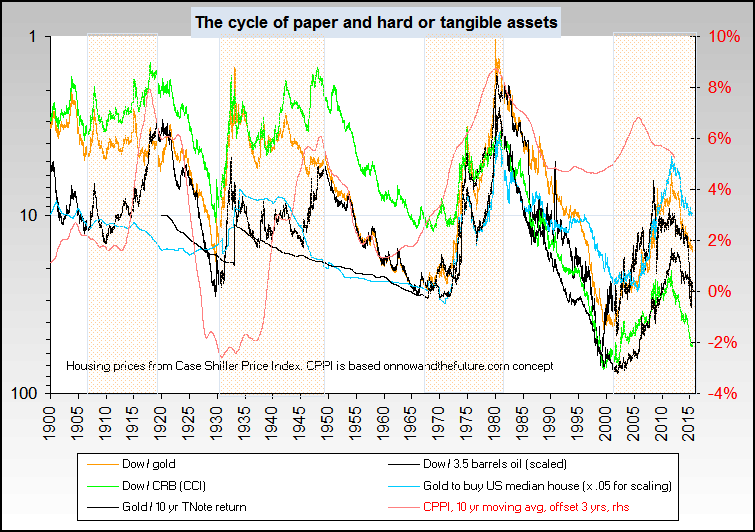Re: Credit inflation, Deflation: Prechter Interview
Quote:
finster, forgot to include this: i don't expect all of my investments to perform similarly under all scenarios. as you made clear in your discussion of your model 320k portfolio of etf's, i want the components to perform differently. i could well believe that in a deflationary scenario the us stock market would tank but the dollar soar.
Quote:
| Originally Posted by finster One further perspective: You apparently believe the US dollar will rise relative to the stock market - another way of saying that stock prices will fall (you say you have a zero stock position). Yet you worry it will fall relative to the rest of the world's currencies. |
finster, forgot to include this: i don't expect all of my investments to perform similarly under all scenarios. as you made clear in your discussion of your model 320k portfolio of etf's, i want the components to perform differently. i could well believe that in a deflationary scenario the us stock market would tank but the dollar soar.





Comment